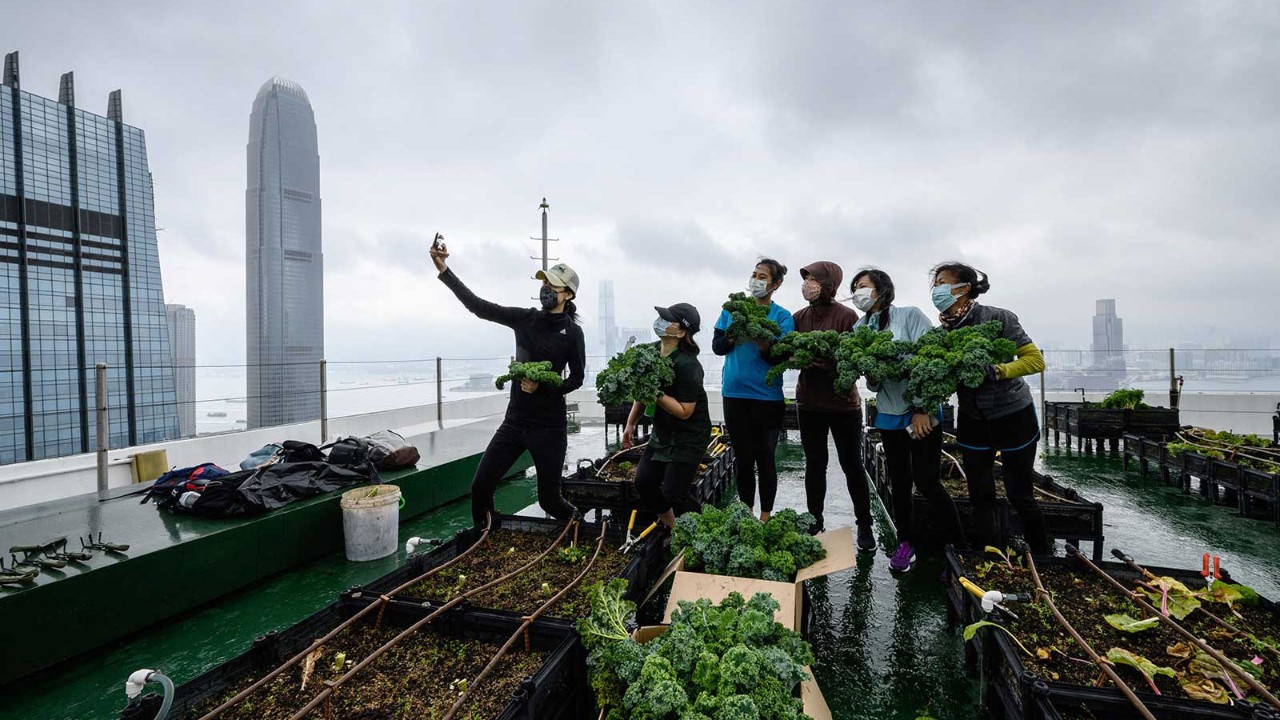
At a time when the Hong Kong government is seeking ways to rejuvenate the economy, a proposal to modernise agricultural industries through the creation of farms at parks, rooftops and other spaces marked for future development has mainly slipped under the radar of public attention.
Published in December 2023, the Blueprint for the Sustainable Development of Agriculture and Fisheries, puts forward various initiatives with the aim to upgrade and transform the quality, quantity, and output value of the local agricultural and fisheries industries.
Proposals include introducing urban farming elements into the planning stage of new development areas, setting up hydroponic farms on rooftops of suitable public buildings, the development of leisure farming and encouraging business enterprises to incorporate elements of urban farming into the planning of private property development projects.
About 90% of the food consumed by Hong Kong’s 7.5 million inhabitants is imported
With commercial fishing permits no longer issued since 2019 to fish in four designated Hong Kong marine parks, the Blueprint also includes proposals to assist fishermen to switch to sustainable mariculture practices that conserve ocean resources.
Currently, about 90% of the food consumed by Hong Kong’s 7.5 million inhabitants is imported, mainly from mainland China. In terms of fresh food, locally grown vegetables account for less than 2% of consumption. According to Rooftop Republic, a Hong Kong social enterprise that promotes urban farming, the Special Administrative Region (SAR) has more than six million square metres of rooftop space that could be utilised for farming – however, less than 1% is currently being used.
With a desire for fresh, locally grown produce on the rise, a ripple of small-scale urban farmers has emerged. Driven by concerns over food security, interest in urban farming has increased in the wake of the Covid pandemic, when a shortage of fresh food due to strict controls disrupted supplies from mainland China.
Those who are passionate about growing their own crops note that having a hands-on connection with food production teaches people to appreciate the effort that goes into growing crops and teaches them to avoid wasting food. According to government statistics, Hong Kong sends about 3,255 tonnes of food waste a day to landfills.
To implement the initiatives set out in the Blueprint, the government says it will partner with relevant stakeholders to create employment opportunities, particularly with a focus on enticing young people to become farmers.
Urban farmers suggest highlighting the merits of improving mental and physical wellbeing
While career preferences in Hong Kong predominantly lean towards the medical, legal and finance professions, Tse Chin-wan, Hong Kong secretary for environment and ecology, believes that incorporating hi-tech and science in farming will convince young people that working on the land is not a career that belongs to previous generations when farming and fishing were deeply rooted in Hong Kong’s cultural heritage.
Instead of focusing entirely on the commercial value of agriculture, urban farmers suggest highlighting the merits of improving mental and physical wellbeing, as well as the benefits associated with farming of cooperation and communication, and a sense of being part of the outdoor community.
While Hong Kong may not be able to produce enough homegrown produce to sustain its entire population, at least for some residents there is an opportunity to establish a symbiotic connection with the environment.


